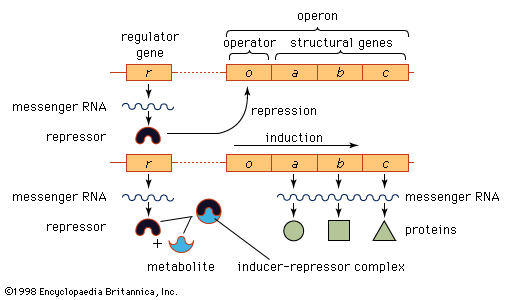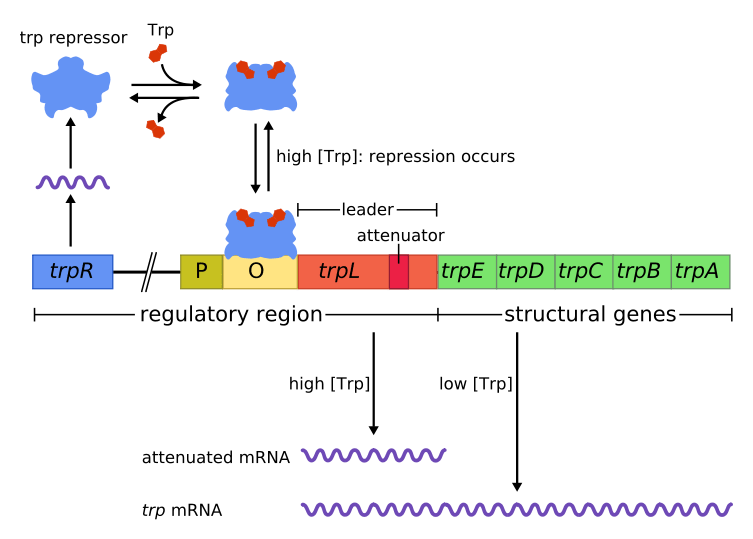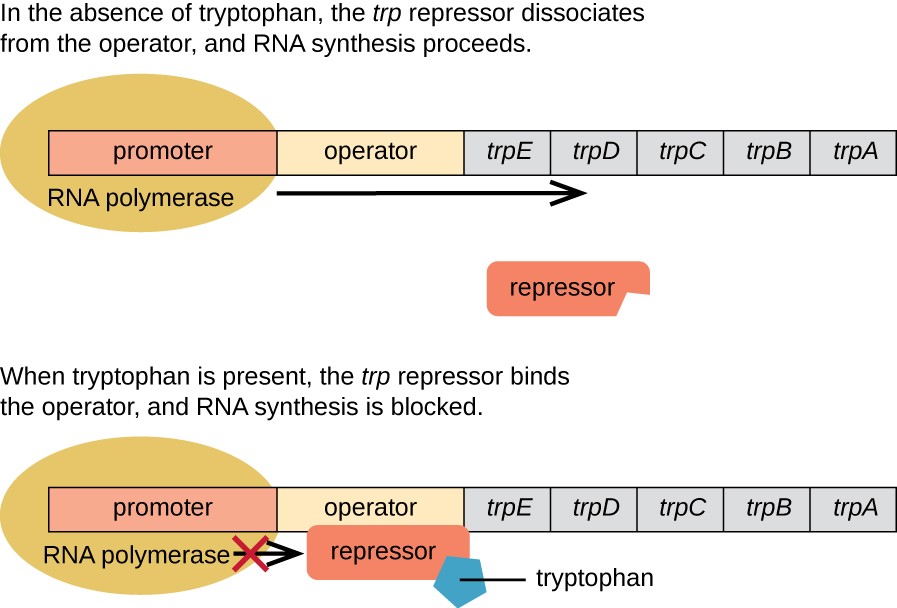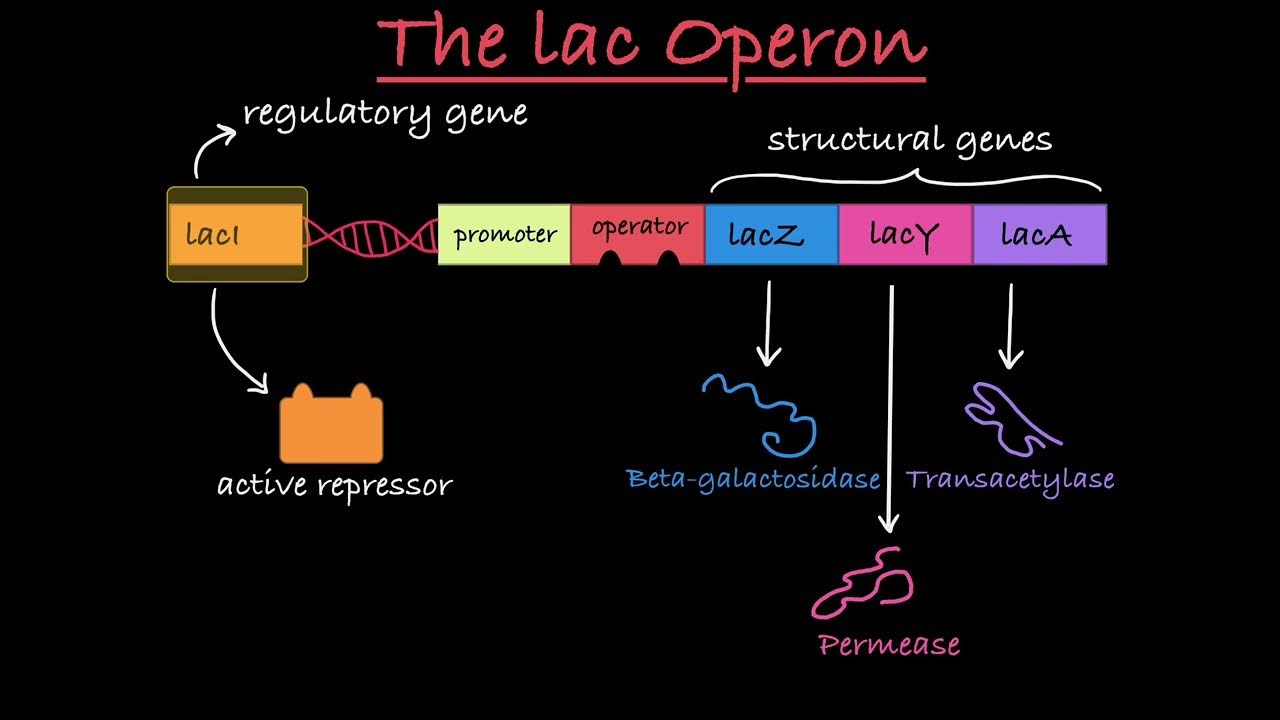(CIE A2 biology) Inheritance - structural genes + the lac operon
Structural gene basics
Structural genes code for the production of polypeptides that’ll either become proteins or form part of a functioning protein w/ the protein products being either structural or metabolic (eg. enzymes/collagen)
Structural gene expression mainly involves mRNA synthesis although some structural genes are transcribed for tRNA/rRNA synthesis

Regulatory gene basics
Regulatory genes code for transcription-controlling proteins that can bind to DNA (eg. lac operon gene repressors)
The repressor proteins produced from regulatory genes can bind to either promoter regions or other DNA regions involved in gene expression regulation

Repressible enzymes
These types of enzymes are normally continuously-produced w/ genes coding for them always being expressed
They’re normally involved in anabolic pathways + synthesizing products that’re essential for cells
Their production rates can be decreased as catalyzed-reaction product concentrations etc. increase - this is because these products may bind to inactive repressor proteins’ allosteric sites thus activating those proteins so the activated repressors then bind to operators to prevent RNA polymerase from binding + progressing along DNA strands (the binding being reversible once the product’s been used up in the cell)

Inducible enzymes
These types of enzymes (including lac operon-produced enzymes) are only produced when the gene coding for them gets switched on in the presence of specific molecules (eg. when enzyme substrates are present)
Constitutive enzymes
These types of enzymes are similar to repressible enzymes except they’re being made all the time
The lac operon
This operon includes three structural genes w/ a nucleotide sequence coding for three enzymes: lacZ (coding for beta-galactosidase which hydrolyzes lactose), lacY (coding for lactose permease which is a membrane transport protein for lactose), and lacA (coding for transacetylase which has a role in sugar metabolism + detoxification)
It also includes an operator portion of DNA next to the structural genes that turns them on/off and an operator-adjacent promoter portion of the same nucleic acid where RNA polymerase binds to for mRNA formation from structural genes
While not part of the lac operon the lacI regulatory gene still codes for the allolactose-binding repressor protein some distance from the operon nonetheless (by default the repressor prevents RNA polymerase from binding to the promoter region and making mRNA based on the lac genes)

 Knowt
Knowt